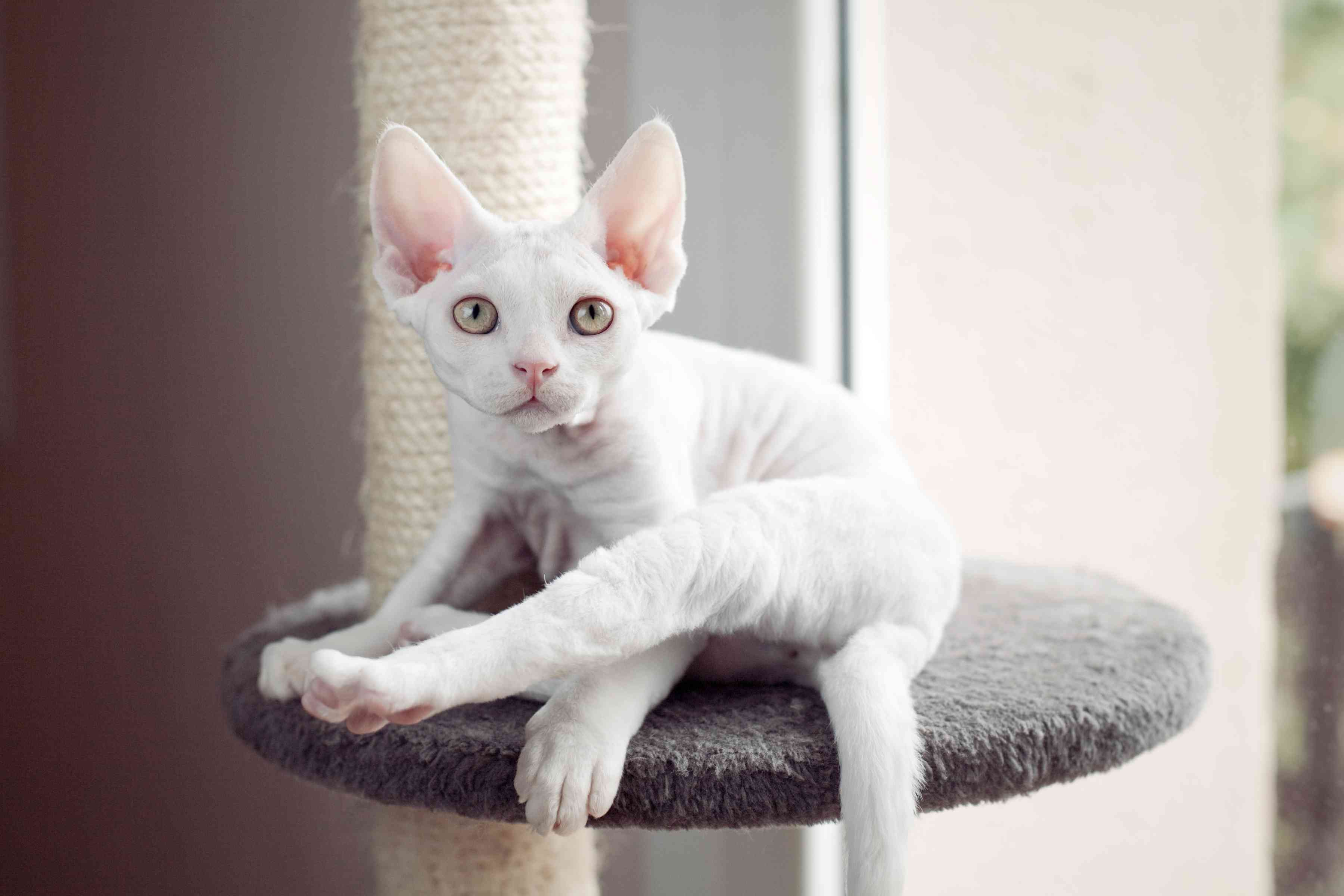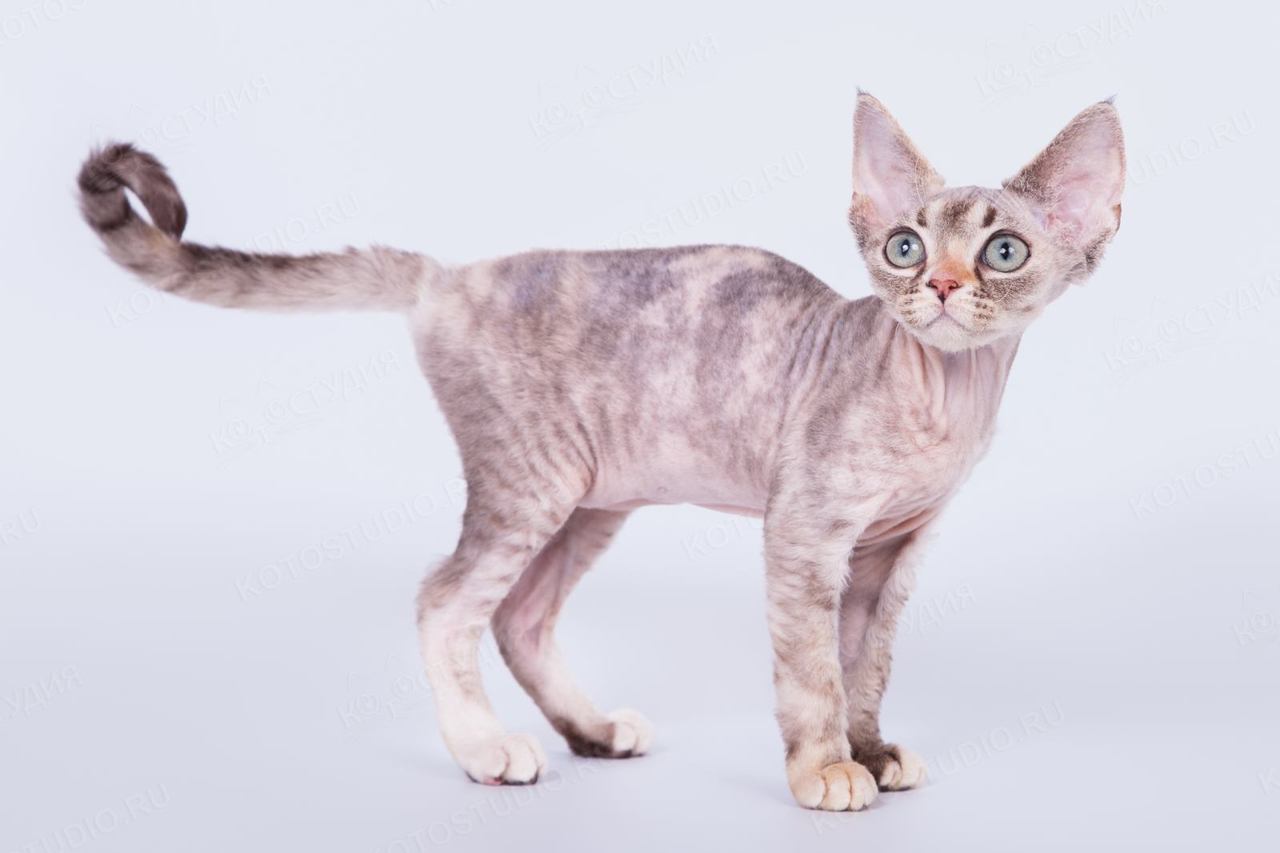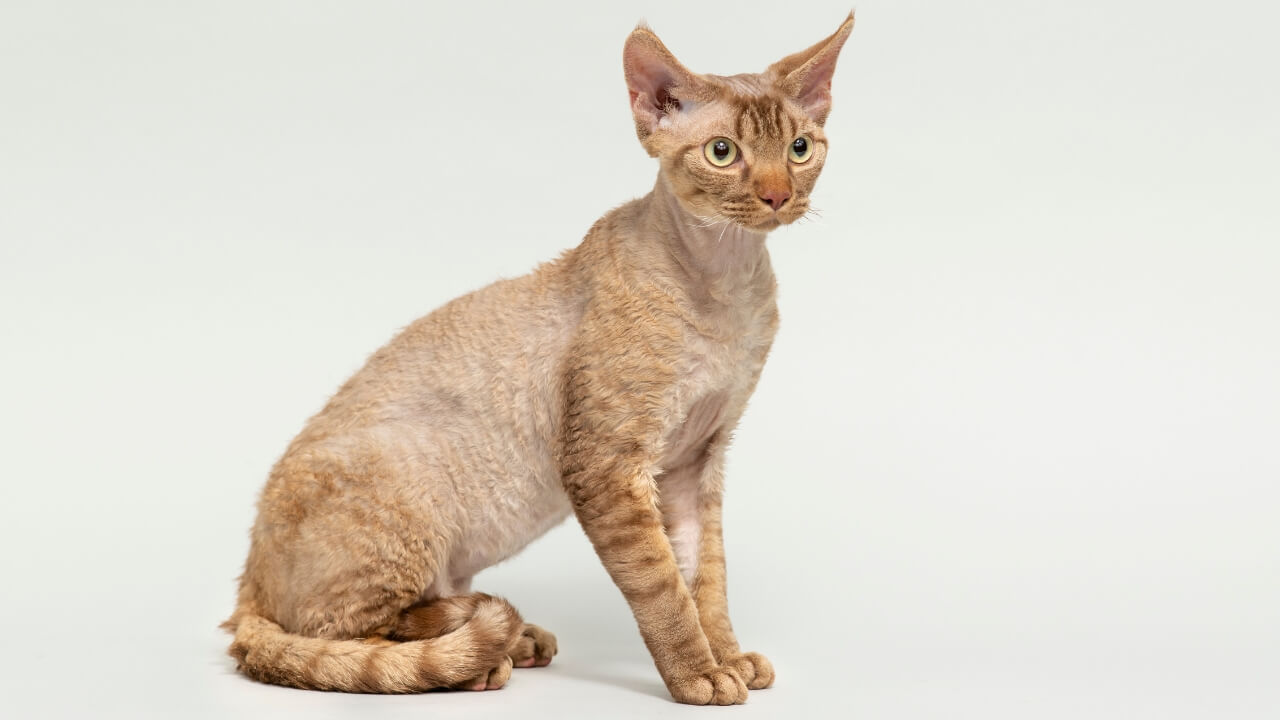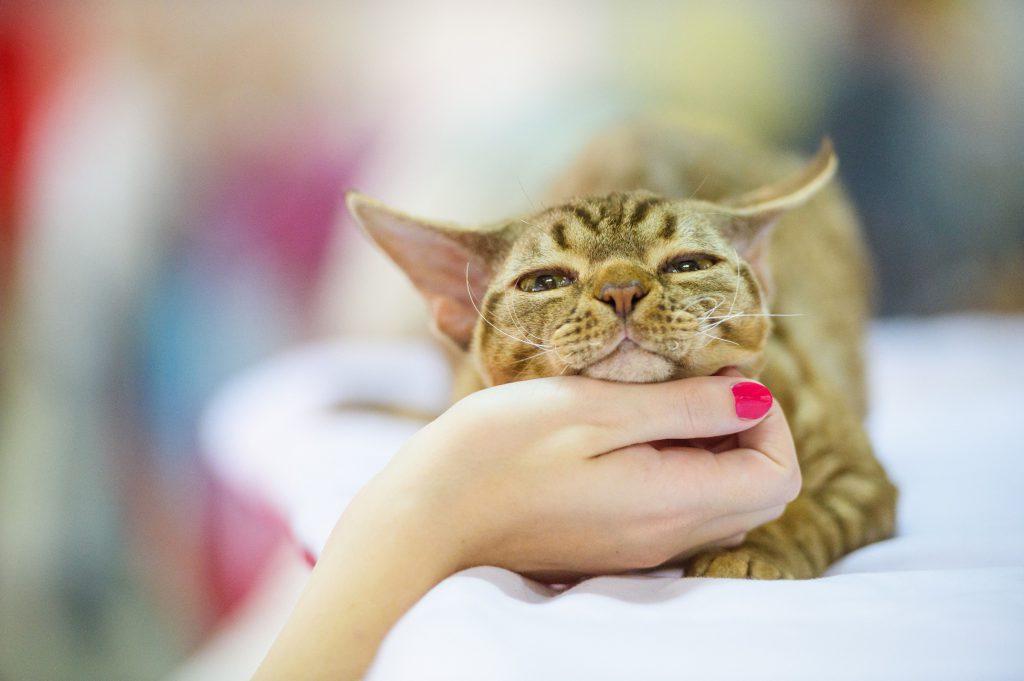
Devon Rex Cat (Characteristics, Temperament, Basic Care) | More
Devon Rex Cat is a fairly recent cat breed that originated from a genetic mutation about 10 years after the discovery of the Cornish Rex. The first Devon, called Karlee, was discovered in Buckfastleigh, Devon, England in 1960.
It was first thought to be a Cornish Rex mutation. However, test mating with the Cornish proved that it was a different breed as only straight-haired kittens were produced. The “rex” or curly gene is quite different between the two breeds.

Devon Rex Cat has a similar soft and wavy looking coat to the Cornish but Devon’s coat has all three types of fur (guard, awn and down) but the guard hairs are stunted. The coat is coarser and has a larger and looser curl and the body type is stockier with a distinctive “pixie” or “elfin” face. Devon’s face looks somewhat like Yoda from “Star Wars”.
In 1967, Great Britain’s Governing Council of the Cat Fancy (GCCF) recognized the distinction between the two breeds and registered them for competition as two distinct breeds. The US Cat Fanciers’ Association (CFA) grouped the two breeds as one cat breed in 1964 but formally recognized the two separate breeds in 1979.

Contents
Devon Rex Cat Characteristics
The Devon Rex is a medium-sized cat that ranges between 6 to 10 pounds with males being heavier than females. Devons are often called “pixie cats” or “alien cats” because of their facial features. They have very large ears set lower on the sides of their wide wedge-shaped heads, large inquisitive eyes, and slightly upturned noses.
They have long sturdy legs with large toes and can jump very high. The Devon’s coat ranges from a shaggy mop of loose curls to a thin suede-like coat. Because the Devon has been carefully crossbred to British and American shorthairs to widen the gene pool, its coat can be almost any color.
Devon Rex Cat Color Varieties
Color is of secondary importance in this breed and the US Cat Fanciers’ Association (CFA) recognizes the same colors and patterns for the Devon Rex as for the American and British Shorthairs.
- Solid colors include black, blue, red, cream, and white.
- Tabbies include silver, brown, red, blue, cream, cameo and patched.
There are also Tortoiseshell and Calico color varieties as well as Tipped, Smoked and Bi-colors. These are the same color varieties like the American Shorthair.

Devon Rex Cat Temperament
The Devon Rex cat is extremely affectionate, intelligent, active and people-oriented house cats. Devons are very active, playful and get involved in all activities. These are powerful jumpers and most locations will be explored and occupied by them at some time or another.
This is a very intelligent breed and the Devon can be trained to walk on a lead and perform many tricks usually performed by dogs – such as fetch, jump, heel, catch, etc. Devons show lots of affection and love to attach themselves around your neck – whether you are standing, walking, sitting or sleeping. Devons make great bed warmers on a cold night.
The Devon Rex cat is very intelligent, athletic and playful – even mischievous at times. They continue their playful and kittenish behavior even when they mature into adults.
The Devon Rex is very inquisitive and has a quiet voice but can become quite vocal – chirping, trilling or chortling – if it wishes to communicate. Devons get along well with well-behaved children, other cats, and dogs. This breed loves to be handled and likes lots of attention.

Devon Rex Cat Care
Like the Cornish, the Devon doesn’t have much of a protective coat and its Rex coat will get wet very quickly. Therefore it should only be a house cat and not be let outdoors. The Devon is a low-maintenance breed that only requires a wipe down with a damp cloth and occasionally a nail-trim, an ear cleaning, and a shampoo.
All cats shed and most people with allergies are allergic to the cat dander and not the fur. Having said this – the Devon is a very low-shedding breed and people with allergies should do better with this type of cat.
However, there is no substitute for the allergic individual holding and handling a prospective breed of the cat before buying. This breed loves to eat and care must be taken to keep them from putting on weight. Devons are generally healthy cats although a few genetic problems have shown up in some bloodlines. These include luxating patella, hip dysplasia, and cardiomyopathy.
